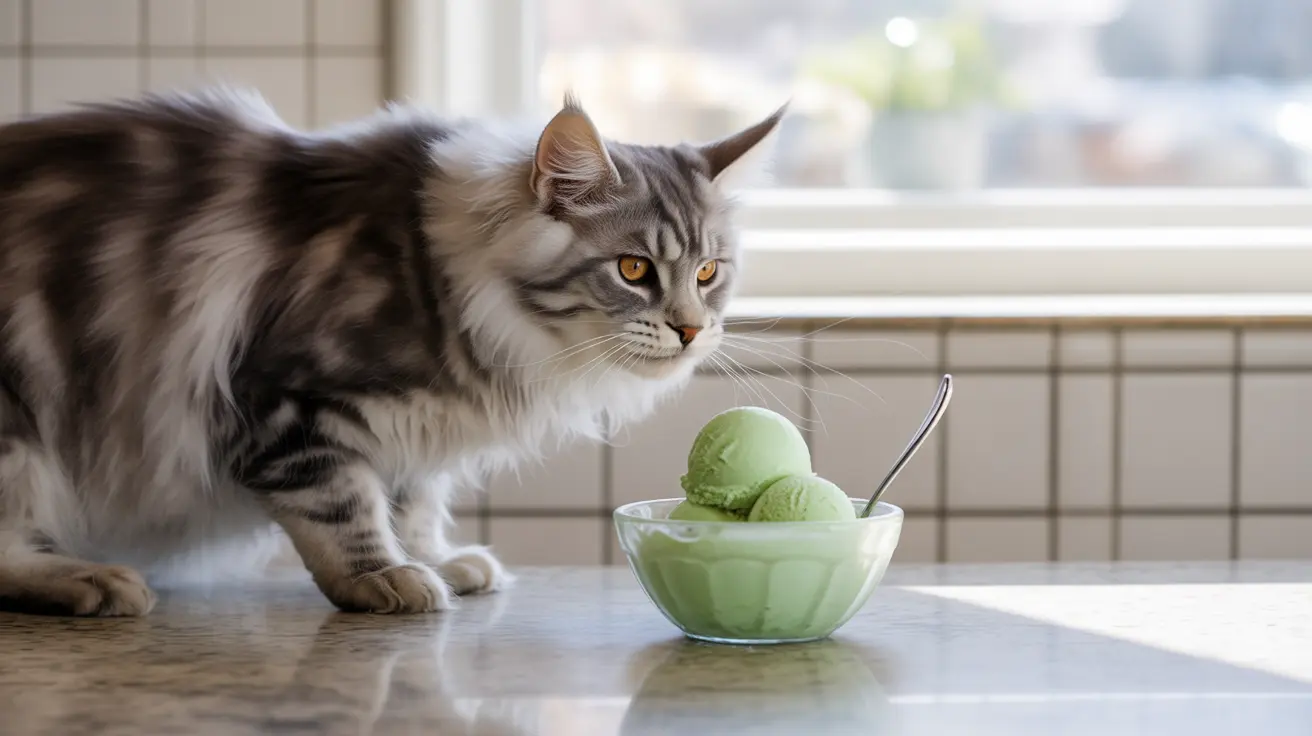As a cat owner, you might be tempted to share your favorite frozen treats with your feline friend, especially during warm weather. However, when it comes to mint ice cream, there are several important health and safety considerations to keep in mind. This comprehensive guide will explore why mint ice cream can be dangerous for cats and what alternatives you can offer instead.
Understanding the Risks of Mint Ice Cream for Cats
Mint ice cream presents multiple potential hazards for cats, ranging from digestive issues to serious toxicity concerns. The combination of dairy, mint extracts, and other common ingredients can create a perfect storm of problems for your feline companion.
The Dairy Dilemma
Most adult cats are lactose intolerant, lacking the necessary enzyme to properly digest dairy products. When cats consume ice cream, they often experience uncomfortable symptoms including:
- Stomach upset and cramping
- Diarrhea
- Vomiting
- Gas and bloating
- Digestive discomfort
Mint and Its Effects on Cats
While the small amount of mint flavoring in ice cream may not be immediately toxic, cats are sensitive to essential oils found in mint plants. Regular exposure or consumption can lead to:
- Gastrointestinal upset
- Liver problems
- Central nervous system issues
- Allergic reactions
Hidden Dangers in Mint Ice Cream
Toxic Ingredients to Watch For
Many mint ice cream varieties contain additional ingredients that can be harmful or fatal to cats:
- Chocolate (especially in mint chocolate chip varieties)
- Artificial sweeteners like xylitol
- High levels of sugar and fat
- Artificial preservatives and additives
The Impact of Sugar and Fat
Regular consumption of high-sugar, high-fat foods like ice cream can lead to serious health issues in cats:
- Obesity
- Diabetes
- Dental problems
- Pancreatic issues
Safe Alternatives to Mint Ice Cream
Instead of sharing mint ice cream with your cat, consider these pet-safe alternatives:
- Commercial cat-specific frozen treats
- Frozen plain chicken broth ice cubes
- Small pieces of frozen cooked meat
- Pet-friendly "ice cream" made specifically for cats
When to Contact Your Veterinarian
If your cat has consumed mint ice cream, watch for these warning signs that require immediate veterinary attention:
- Persistent vomiting or diarrhea
- Lethargy or weakness
- Tremors or seizures
- Difficulty breathing
- Changes in behavior or appetite
Frequently Asked Questions
Can cats safely eat mint ice cream without getting sick?
No, cats should not eat mint ice cream as it contains multiple ingredients that can cause digestive issues, allergic reactions, or toxicity. The combination of dairy, mint extracts, and other additives makes it unsafe for feline consumption.
What are the symptoms of mint toxicity or lactose intolerance in cats after eating ice cream?
Common symptoms include vomiting, diarrhea, stomach upset, bloating, and lethargy. In cases of mint toxicity, cats may also experience nervous system effects like tremors or behavioral changes.
Why is chocolate in mint chocolate chip ice cream dangerous for cats?
Chocolate contains theobromine and caffeine, which are toxic to cats. Even small amounts can cause serious health issues, including increased heart rate, tremors, seizures, and in severe cases, death.
Are there any safe frozen treats I can give my cat instead of regular mint ice cream?
Yes, you can offer cat-specific frozen treats, frozen plain chicken broth ice cubes, or commercially prepared cat-safe frozen treats. Always ensure any treats are specifically formulated for feline consumption.
What should I do if my cat accidentally eats mint ice cream and shows signs of distress?
Monitor your cat closely and contact your veterinarian immediately if you notice persistent vomiting, diarrhea, lethargy, or unusual behavior. Keep track of how much was consumed and what specific type of mint ice cream it was.
Remember, while sharing treats with your cat can be tempting, it's always best to stick to foods specifically formulated for feline consumption. Your cat's health and safety should always come first.






